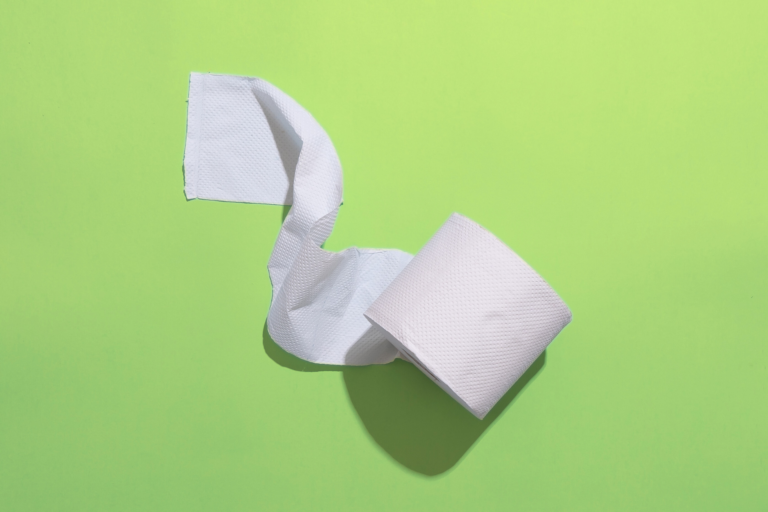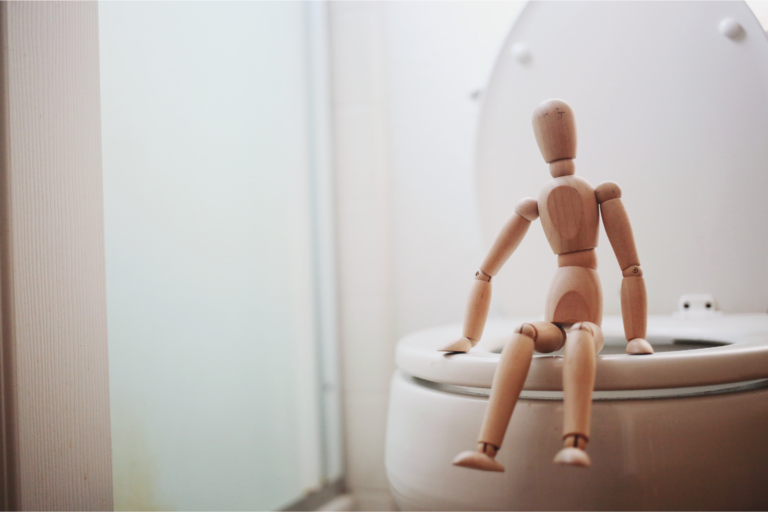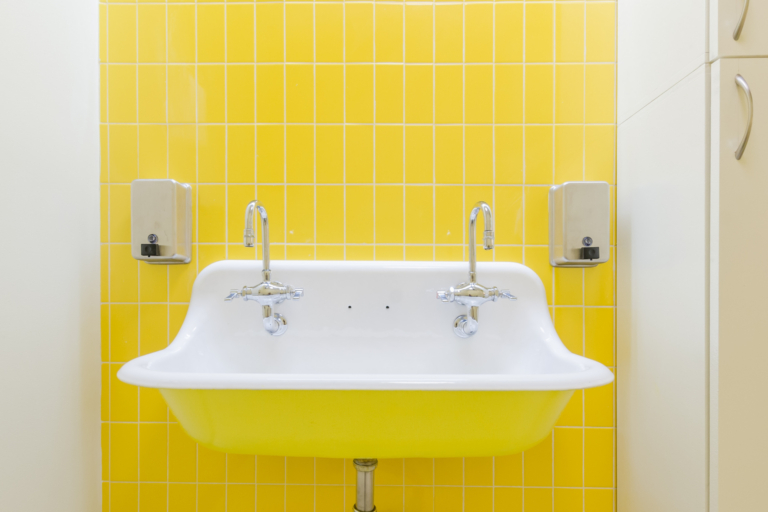Why Does My Poop Smell Sweet? [Infants & Adults]
Key Takeaways:
The most common cause of sweet-smelling poop is a Clostridium difficile infection. This infection is often caused by antibiotic overuse and/or long-term hospital or healthcare facility stays.
In some cases, diabetes can cause sweet-smell poop and/or urine. This smell is typically described as “fruity.” It might be accompanied by other diabetes symptoms like excessive urination or thirst, fatigue, and unexplained weight loss.
Baby poop might smell sweet during breastfeeding, due to the high presence of glucose in breastmilk. Other causes of sweet-smelling baby bowel movements include infant diabetes, dietary changes, teething, or the rare disorder Maple Syrup Urine Disease.
Cause #1: C. Diff infection
A bacterial infection caused by the Clostridium difficile bacteria is the most common cause of sweet-smelling poop. It can also cause very foul-smelling bowel movements.
These changes happen due to the production of various gases and compounds by the bacteria during the digestive process. However, stool smell alone isn’t a reliable diagnostic tool, and a confirmed diagnosis of C. diff infection generally requires a stool sample test.
This infection may be referred to by names like:
- C. diff
- C. difficile
- C. diff infection
- Clostridiodes difficile
- CDI
What is a C. Diff infection?
Clostridioides difficile, or C. diff, is a bacterial infection that typically affects the digestive system, especially in the colon or large intestine. This type of bacteria produces toxins that can cause inflammation and damage the lining of your gut.
The symptoms of C. diff infection can range from mild diarrhea to severe conditions like pseudomembranous colitis, a severe inflammation of the colon.
Other symptoms may include abdominal pain, nausea, fever, diarrhea, and loss of appetite.
Read Next: White Poop: Causes, Treatments & Prevention
C. Diff causes
The primary cause of C. diff infection is an imbalance in your gut microbiome, often triggered by prolonged antibiotic use.
Antibiotics, while useful for fighting off harmful bacteria, can also disrupt the balance of healthy bacteria in your digestive tract. This allows opportunistic bacteria like C. diff to multiply and produce toxins, leading to infection.
That’s why you should always take antibiotics as prescribed. When your doctor prescribes you or a member of your family antibiotics, don’t ever “share” doses or stop taking the medication before you’ve finished it (even if you start feeling better).
Other risk factors for CDI include:
- Long stays in healthcare settings like hospitals or nursing homes
- Older age
- Having a weakened immune system
Can CDI be identified by smell?
While it’s not typical to identify a C. diff infection only by the way your stool smells, certain changes in the odor of feces, such as a sweet or unusually foul smell, can be a possible indicator.
Studies have looked for signs that nurses or other healthcare professionals may be able to identify this infection by smell. The first study, published in 2007, found evidence that nurses could identify C. diff by smell, but a follow-up study published in 2013 couldn’t confirm the results.
Interestingly, a 2012 case-control study discovered that a trained dog could successfully identify this infection by smell alone.
C. diff treatments & management
Treating a C. diff infection usually involves antibiotics specifically effective against this type of bacteria, like fidaxomicin, vancomycin, or metronidazole. If the infection is linked to the use of a particular antibiotic, stopping that antibiotic can also help with treatment.
Fecal microbiota transplantation (FMT, also called fecal transplant or microbiota transplant) is sometimes used for recurring or severe CDI infections. This procedure involves transplanting healthy fecal bacteria from a donor into the patient to restore the balance of bacteria in the gut.
Managing C. diff requires healthcare staff and patients to practice good hygiene practices to prevent the spread of the bacteria. A healthy diet and taking probiotic supplements to support overall digestive health can potentially reduce the risk of C. diff infection.
Cause #2: Diabetes
Diabetes may sometimes cause unexpected changes in the smell of your feces and urine, including “fruity” or very foul-smelling stool. A very bad smell is most common, and diabetic poop is unlikely to smell overwhelmingly sweet like C. diff poop might.
Diabetes, a chronic condition characterized by elevated blood sugar levels, can impact your digestive system (among other aspects of your health).
High blood glucose levels, especially in uncontrolled diabetes, can lead to certain changes in your body’s normal functioning and metabolism, including changes to poop and urine odors.
Why does diabetes cause poop to smell sweet?
In poorly managed diabetes, excess glucose in the blood can influence the scent of your waste products. This is because the body tries to eliminate extra glucose through your urine and stool. This excess glucose can give your poop a subtly sweet smell.
Changes in poop smell alone are not definitive signs of diabetes. This change is just one possible symptom, among others like excessive thirst, frequent urination, fatigue, and unexplained weight loss.
Read Next: Bristol Stool Chart: Types, History, and How It’s Used
Diabetes may also cause “fruity” smelling urine
In addition to changes in the smell of your feces, diabetes can also affect the odor of your urine. High levels of blood sugar can lead to increased urination as your body works to remove the excess glucose. This process can result in urine that has a sweet or “fruity” scent.
In extreme cases, when the body can’t use glucose for energy due to lack of insulin, it starts burning fat for energy, producing ketones, a type of acid. If these build up to high levels in your body — a condition called ketoacidosis — your urine may have a particularly strong, sweet smell.
Ketoacidosis is a serious condition that can lead to a diabetic coma or even death if not treated promptly. If you notice a fruity or sweet smell in your urine, especially if you have other symptoms of high blood sugar, seek medical attention right away.
Diabetes is often treated with medications such as metformin and/or insulin injections.
Causes of sweet-smelling baby poop
It’s not uncommon for babies’ stool to have a slightly sweet smell, which can be influenced by various factors, including their diet and overall health.
Here are some reasons why a baby’s poop might have a sweet scent:
- Breastfed babies: The poop of breastfed babies often has a sweetish smell. This is largely because breast milk, which is rich in lactose, a type of sugar, is easily digestible. As such, the waste products produced during its digestion may carry a slightly sweet smell.
- Dietary changes: The introduction of solid foods or a change in formula can also alter the smell of a baby’s poop. Some foods may produce a sweet-smelling stool, while others may lead to more pungent feces.
- Infant diabetes: Although rare, infants can develop diabetes. If a baby’s body cannot regulate glucose properly, excess glucose may be excreted in the urine and stool, giving it a sweet smell.
- Maple Syrup Urine Disease (MSUD): This is a very rare but serious metabolic disorder that can cause a sweet-smelling, syrup-like odor in infant urine and feces. MSUD requires immediate medical attention as it can result in significant health complications if not treated promptly.
- Teething: Teething can sometimes cause a baby’s poop to smell sweet. The exact reason this happens isn’t entirely clear, though.
While a mild, sweet smell in a baby’s poop is typically no cause for concern, especially in breastfed infants, a strong or persistent sweet smell might indicate a health issue.
If you notice any significant changes or if you’re concerned about the smell of your baby’s poop, it’s always best to consult a pediatrician. They can provide guidance and run any necessary tests to rule out potential underlying health conditions.
What should you do if your poop smells sweet?
Unusual changes in the smell of your poop might indicate an underlying medical condition. If you start to notice a sweet smell in your poop, consider taking these steps:
- Monitor for additional symptoms: Do you have any other symptoms happening with the sweet-smelling poop? These could be symptoms of diabetes like frequent urination, increased thirst, constant hunger, weight loss, fatigue, and blurred vision. In case of a potential C. Diff infection, you might experience symptoms like severe diarrhea, abdominal pain, loss of appetite, and fever. Make sure to keep track of these symptoms.
- Evaluate your diet: Have there been any recent changes in your diet that could be affecting your digestive system? Consuming certain types of food or high amounts of artificial sweeteners might impact the smell of your poop. If you suspect your diet may be the cause, you could try adjusting it to see if the smell changes.
- Consult a healthcare provider: If the sweet smell persists, or if it’s accompanied by other symptoms, consult a healthcare provider. Depending on your other symptoms and medical history, your doctor can identify a diagnosis and prescribe a treatment plan.
- Provide a stool sample: Your healthcare provider may ask for a stool sample to determine the possible causes of the sweet-smelling poop. This could help diagnose gastrointestinal conditions, bacterial infections, and diseases affecting the pancreas or other parts of the digestive tract.
Other causes of foul-smelling poop
While a sweet smell might be your concern, poop can also exhibit a variety of other odors that may indicate another health issue. Apart from C. Diff infection and diabetes, several other conditions can cause foul-smelling stool. Here’s a rundown of some additional causes:
- Gastrointestinal disorders: Conditions like Crohn’s disease, ulcerative colitis, and other types of inflammatory bowel disease (IBD) can cause foul-smelling stool. These conditions often lead to abdominal pain, bloating, constipation, and changes in bowel movements.
- Malabsorption issues: Problems with the absorption of nutrients, such as celiac disease or cystic fibrosis, can lead to malodorous (very bad-smelling) stool. These conditions prevent the digestive tract from properly absorbing certain nutrients, which can result in stool that smells particularly bad or even floats in the toilet, an indication of high fat content.
- Pancreatic issues: The pancreas produces essential enzymes that help digest food. If the pancreas isn’t working correctly, it can lead to indigestible food in the stool, causing it to smell foul.
- Infections: Certain infections of the digestive tract can lead to foul-smelling poop. Besides Clostridioides difficile (C. diff), infections from other bacteria, viruses, or parasites can disrupt the digestive process and lead to changes in the smell of your stool.
- Diet: The type of food you consume can directly impact the smell of your feces. Foods high in sulfur, like garlic, onions, and certain types of protein, can result in particularly pungent poop (reminiscent of rotten eggs). People with lactose intolerance often complain of very smelly bowel movements. Additionally, overconsuming alcohol or certain medications and supplements can also cause your poop to smell really bad.
- Certain metabolic conditions: Diseases that affect the way your body processes or breaks down certain substances can lead to foul-smelling stool. For example, ketoacidosis, a complication of diabetes, can make your stool smell particularly unpleasant.
Can too much sugar cause smelly poop? Eating very sugary or highly-processed foods might cause your poop to smell bad if you lack an enzyme that breaks down carbohydrates entirely. The foul smell is a side effect of excreting undigested fats.







